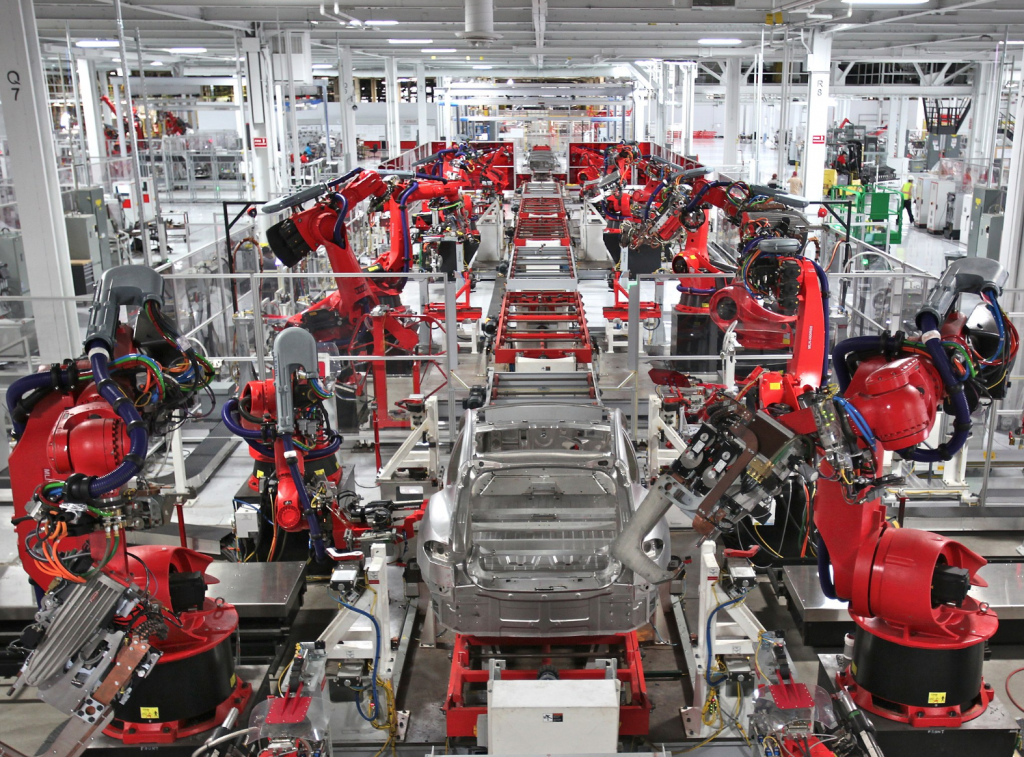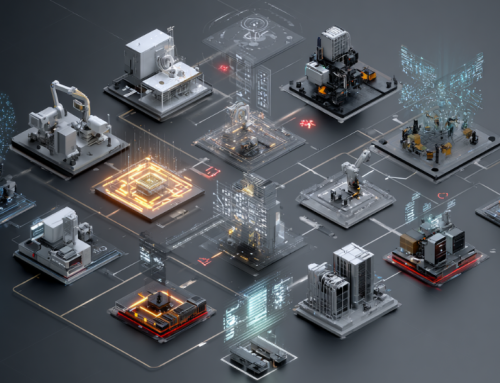
Most auto factories are fully automated by robotics, but hyperautomation means that they would run every aspect of manufacturing without human intervention. (Source: Steve Jurvetson from Los Altos, CA for Wikimedia Commons)
‘Hyperautomation’ to Take Factory Operations to New Level via Deep Learning, IOT
Hyperautomation, a new term coined by Gartner, Inc., the research and data company, predicts that self-running factories will determine their own quality needs, line speed and other processes in the near future. IT manufacturing departments are working on integrating AI in all levels of manufacturing, according to the story on VentureBeat.com.
The worldwide market for technology that enables hyperautomation will reach $596.6 billion in 2022, according to Gartner projections. This is up from $481.6 billion in 2020 and a projected $532.4 billion this year. Gartner defines hyperautomation as: “an approach that enables organizations to rapidly identify, vet and automate as many processes as possible using technology, such as robotic process automation (RPA), low-code application platforms (LCAP), artificial intelligence (AI) and virtual assistants.
Fabrizio Biscotti, a Gartner research vice president, said organizations will automate as many processes as possible with AI, robotic process automation and low-code platforms.
Hyperautomation is being driven by machine-learning algorithms becoming more affordable and widespread, while IOT and its sensors will enable factories to “connect processes, gather data, and gain important insights into factory performance,” according to Scot Kim, a senior director analyst in Gartner’s advanced manufacturing and transportation Group.
“Hyperautomation is becoming a thing for manufacturers to increase productivity with optimization,” Kim said. “Supply chain disruptions, labor shortage and macroeconomic turmoil happening may continue throughout 2022 and manufacturers are ready to make aggressive investments to modernize their factories.”
The next step will be autonomous operations of factories.
“We now have the ability to enable self-learning, as opposed to explicit programming of these systems, ” said Jordan Reynolds, global director of data science at the management consulting firm Kalypso.. “And they’re able to learn how to create products and maintain levels of quality on their own.”
read more at VentureBeat.com







Leave A Comment